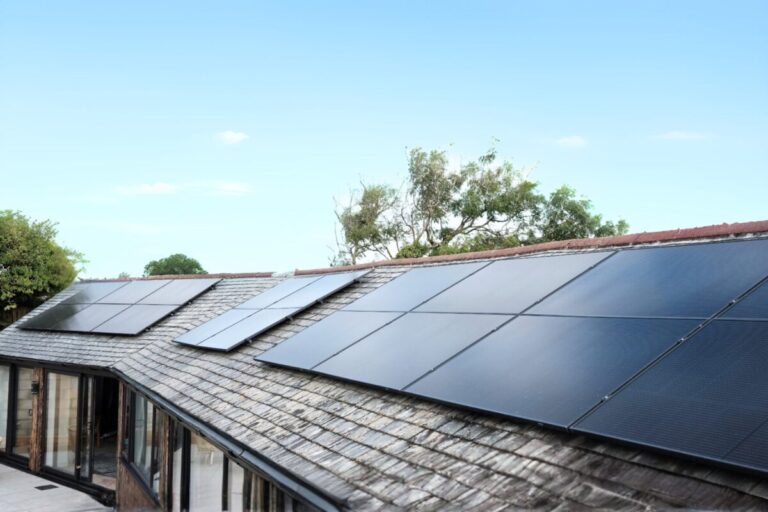A project launched by solar technology company GRYD Energy, in partnership with BK Developments, will test smart solar and battery storage systems for new-build homes at no upfront cost to the developer or homeowner.
Tested at three homes in St. Ives, Cornwall, an installation with a capacity of 11.5 kWp will meet 70% of residents’ energy demand. GRYD finances and maintains the solar hardware and offers a guaranteed fixed monthly power price that will not increase over the 25-year life of the system.
Additional energy generated from the solar panels will be sold through export agreements that GRYD says it has signed with national energy suppliers. This revenue stream will fund the company’s delivery of the monthly subscription. The smart solar and battery storage system will also provide flexibility and reduce load at peak times.
Tom Jordan, CCO and co-founder of GRYD Energy, said the company’s launch aims to prove “how innovative solar solutions can make clean energy accessible and affordable for everyone.”
He added: “Despite solar being the cheapest form of energy, more than nine million UK homeowners are unable to access the cost-saving benefits of solar energy due to its high upfront costs. Developers across the country – already facing higher construction costs – are struggling to invest in the renewable technologies they need to decarbonize and future-proof their properties.”
According to GRYD, the system has already reduced residents’ energy bills by 15%, demonstrating the value of off-grid models in securing cheap clean energy.
The launch comes as the government’s Future Homes Standard (FHS) remains vague about solar installations for new-build homes. Although the FHS will not be weakened in its current form, it does not require standard solar energy systems to be installed on all new construction homes.
The failure to include the mandate has been widely criticized by the sector. The Ministry of Housing, Communities and Local Government said it wants “solar panels on as many new homes as possible”.
However, it also states that while solar panels are an “essential technology” in achieving net zero, they “may not be the best option for all new homes, such as those surrounded by trees or with lots of overhead shade”.
“It is also vital that we set standards for new homes in a way that enables future innovation and flexibility in technology and design. That is why the building regulations do not prescribe a specific option.”
David Cowdrey, acting chief executive of the MCS Foundation, a charity that certifies solar installations, said: “The government’s apparent inability to require solar panels on all new developments is extremely disappointing and represents a huge missed opportunity.
“Allowing loopholes with vague ‘incentives’ to developers is simply not enough to meet net zero requirements and maximize the opportunity for rooftop solar.”


